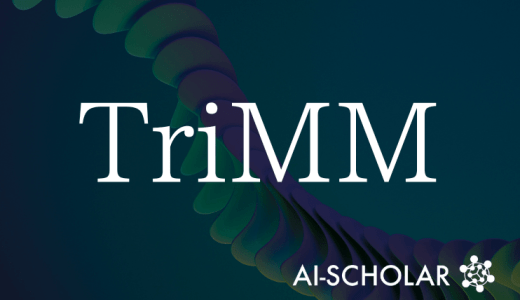
LLMs As Mentors Instead Of Humans? Reinforcement Learning Agents Trained In Natural Language
3 main points
✔️ Identifies difficulty in leveraging human feedback as a challenge in natural language reinforcement learning
✔️ Proposes a new policy for leveraging language models to solve this problem
✔️ Proposed method enables more efficient reinforcement learning in complex language tasks
Natural Language Reinforcement Learning
written by idong Feng, Bo Liu, Yan Song, Haotian Fu, Ziyu Wan, Girish A. Koushik, Zhiyuan Hu, Mengyue Yang, Ying Wen, Jun Wang
Submitted on 21 Nov 2024 (v1), last revised 28 May 2025 (this version, v3)
Comments: 10 pages
Subjects: Machine Learning (cs.LG); Artificial Intelligence (cs.AI); Computation and Language (cs.CL)
code:
The images used in this article are from the paper, the introductory slides, or were created based on them.
Summary
This paper details reinforcement learning with natural language. In particular, it introduces a "teach-to-learn" (To-Teach) approach using LLMs. The paper proposes a method for training models through language-based feedback, utilizing LLMs as teachers.
The central idea is to improve model performance by mimicking human instruction. This approach elaborates the decision-making process in a particular task and helps the model acquire more advanced inferential capabilities.
Experiments incorporate a policy evaluation technique using Monte Carlo Tree Search (MCTS) to show how LLMs perform on specific tasks. We also observe how LLMs fine-tune and adapt their tasks through verbal feedback.
In addition, it details how visual analysis and specific settings of the training process can be used to enhance LLMs' abilities. It is unique in that it focuses on the process of how things are communicated and learned, and attempts to bridge the gap between language and behavior.
This could broaden the applicability of LLM and allow it to mimic human instruction in a more natural way.
Research Background
This paper is a study of reinforcement learning for machine learning models using natural language feedback. In particular, it explores how LLMs can act as reinforcement learning agents to perform tasks. The research focuses on the ability of LLMs to use language itself to improve themselves and other models.
In the paper, the researchers experimentally test how feedback using language can contribute to improved model performance. Specific case studies include experiments in board games and maze-solving tasks, and the results reveal how verbal feedback influences action selection and strategy.
The study also discusses the possibility that learning with verbal feedback may be more efficient than traditional reinforcement learning methods. This suggests further use of LLM in a variety of applications. The research opens up new possibilities at the intersection of natural language processing and machine learning in the future.
Proposed Methodology
This paper is a study of reinforcement learning (RL) with natural language. Primarily, it proposes new solutions to tasks in RL by leveraging the language understanding capabilities of large-scale language models (LLMs). Specifically, the paper explores how agents learn through language-based goal setting and feedback.
The paper focuses on the role that language models provide as an interpreter and proposes a method to improve task decision making using a linguistic value function. We use a technique called language TD to adjust and optimize the value of the agent's actions through language.
Furthermore, through experiments in a task environment, we show how these methods outperform traditional reinforcement learning methods. By showing that agents can learn effectively, we propose new potential applications for language-based techniques. In this way, we aim to enable more natural interactive reinforcement learning.
Experiments
This paper details the application of natural language to reinforcement learning. In the experiments, we observe an agent solving a maze utilizing LLM. Specifically, as the agent moves through the maze, it uses LLM-based prompts to select its actions.
First, the Maze Experiment receives observations based on the agent's position in the environment to determine its next move. The agent's goal is to reach its goal as quickly as possible. It does this by utilizing natural language prompts generated by LLM to verify how the agent learns from its next move. The LLM built on the Transformer architecture will be used in this process.
Another experiment, the Breakthrough Experiment, uses OpenSpiel to observe agent behavior in different scenarios. Here, we will run simulations to analyze how the agents learn by trying different strategies, comparing individual results over 100 trials and evaluating how the LLM intervention affects the learning outcome.
Through these experiments, we show that LLM may improve the agent's ability to navigate in decision making. Based on the experimental results, it is also confirmed that certain parameter adjustments enhance the learning efficiency of the agents.
Overall, the application of LLM to reinforcement learning proposes a new way to guide agents' decision making in natural language and provides interesting insights into its potential.
Conclusion
This paper describes how language models (LLMs) can be used to optimize game strategies. Specifically, it explores how LLMs can be used to evaluate and select the next best move in board games such as Shogi and Chess.
First, the agent assesses its current position in the game and aims to reach the objective to be achieved in the shortest possible time. The agent considers several candidate moves and makes an evaluation of each move. For the evaluation, data from previous cases and in similar situations are used.
A particular feature of this research is the agent's active use of "look-ahead" information. This is done in order to make better decisions by predicting in advance how the next move will affect the overall game.
Furthermore, the agent repeatedly chooses actions based on the evaluation results to improve its strategy. Through this process, agents are able to make more effective and winnable choices. This study presents a new strategy development method that utilizes LLM and suggests that it may help AI mimic human thought processes.
Categories related to this article








